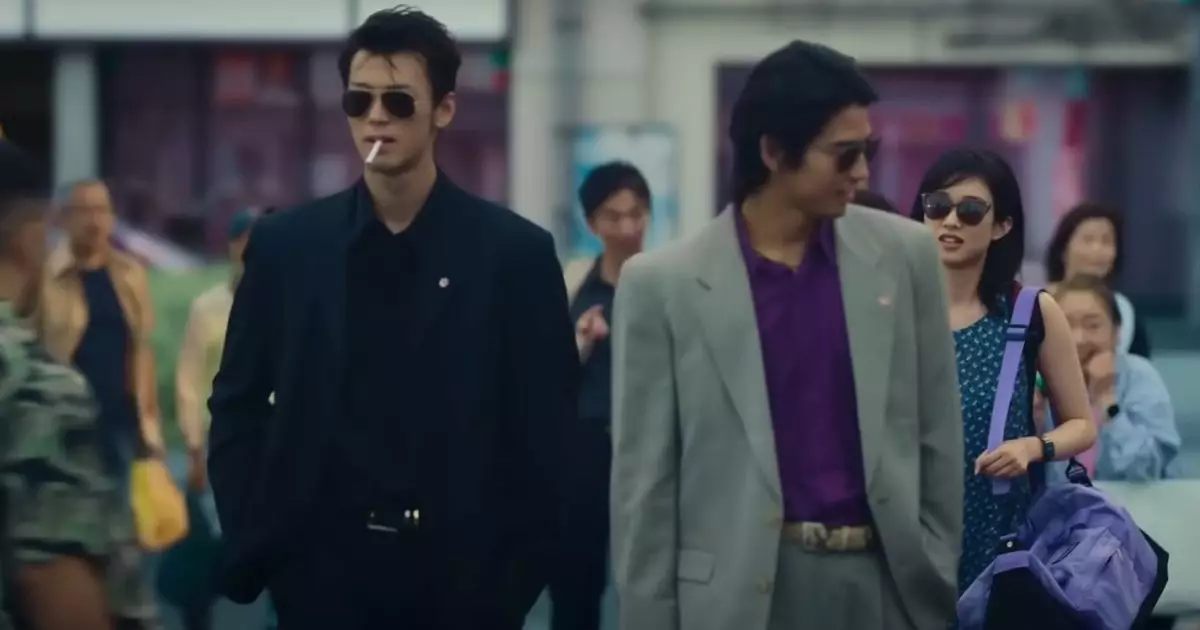The ever-expanding universe of video game adaptations has recently welcomed a new addition: Amazon’s upcoming series “Like A Dragon: Yakuza.” With a fresh trailer making rounds, reactions within the gaming community have been mixed. As a devoted fan of the Yakuza franchise, my sentiments towards this adaptation oscillate between skepticism and guarded optimism. While the original games exude a unique blend of drama, quirky humor, and engrossing narratives, the question remains: can this new TV series do justice to such a beloved and intricate saga?
The trailer paints a picture that leans towards a gritty, serious tone rather than humor, which is emblematic of the Yakuza games. This choice is understandable, considering the nuances and darker themes embedded in the source material; however, it raises concerns that the show might stray too far from the quirky charm that has defined the franchise. In the vast world of Yakuza, laughter and absurdity coexist with heartfelt emotional beats, allowing players to navigate complex narratives peppered with peculiar side stories and outlandish characters.
Indeed, the absence of the franchise’s notorious eccentricities — like characters with absurd monikers and side quests that defy logic — leaves one yearning for a balance. The lack of a narrative thread that mimics the series’ signature zany escapades might alienate long-time fans who cherish those lighter moments. A balance between the serious and the absurd is crucial for retaining the essence of Yakuza, a franchise that thrives on duality.
The official synopsis reveals a layered story set in two eras: the mid-1990s, focusing on a theft at an arcade controlled by the Dojima Family, and a decade later, with Kiryu’s release from prison. While the narrative depth promisingly hints at developing relationships and moral quandaries among characters, one must question whether the show can bring to life the heart of the Yakuza saga. The original games were deeply entrenched in themes of loyalty, friendship, and personal sacrifice; thus, the adaptation must tread carefully to emphasize these elements.
The eventual reunion of Kiryu and his friends, contrasted with the unfolding chaos within the criminal underbelly of Kamurocho, speaks to a broader theme about the consequences of a life within the Yakuza. With rival clans vying for dominance, the stakes are high, but the emotional stakes must be equally compelling. Kiryu’s journey is as much about reclaiming relationships and confronting one’s past as it is about gang warfare, and this intricate emotional tapestry should not be neglected in favor of action.
As we speculate about the show, the conclusion seems predictable to those familiar with the games. Kiryu’s inevitable clashes with various thugs, climbing the Millennium Tower, and the more explosive elements are anticipated spectacles. However, these typical scenarios may not resonate fully without proper character development and emotional conflict leading to them. The Yakuza series has always thrived on its rich narrative and character arcs; a mere focus on action sequences could dilute the impact of Kiryu’s story.
Moreover, the inclusion of the more human elements — of helping those in need and moral dilemmas — remains to be seen. These interpersonal moments often constructed the backbone of the games, bringing players close to the characters they grew to love. If the show neglects these intimate exchanges in favor of spectacle, it risks feeling hollow and detached from the franchise’s essence.
Ultimately, the upcoming “Like A Dragon: Yakuza” series stands at a crossroads. Enthusiasts are left teetering between anticipation and apprehension, begging the question: will it resonate with both existing fans and newcomers? The potential for rich storytelling exists, but it necessitates a deft touch in balancing the series’ notable absurdities with its darker undertones. As we await the series’ debut, the hope remains that Amazon’s adaptation will honor the legacy of Yakuza, capturing not just its narrative complexity but also the heart and humor that have endeared it to millions.


Leave a Reply